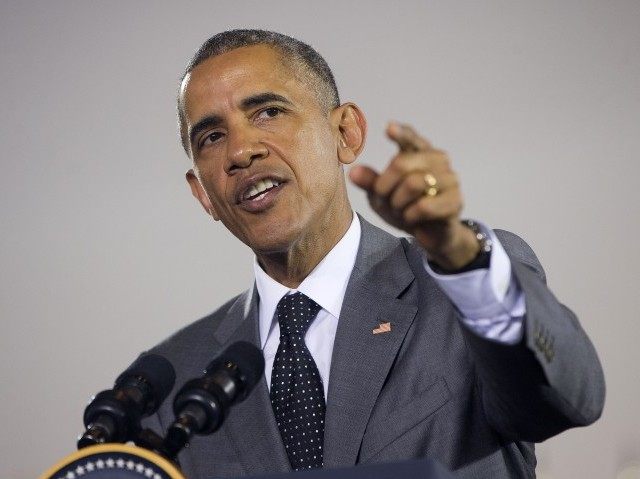President Barack Obama will deliver a speech on the Iran deal at American University on Wednesday in an attempt to cement support in Congress.
Leaked previews of the speech suggest that Obama will try to draw parallels between himself and President John F. Kennedy, arguing that Kennedy negotiated with the Soviets even after war nearly erupted over the Cuban missile crisis. He will also associate critics of the Iran deal with the Iraq war. These are arguments the public has heard before–from Obama, Sen. Dick Durbin (D-IL), and others.
The problem, for Obama, is that Kennedy was prepared to use military force, and did so during the Cuban missile crisis and elsewhere. In addition, there are prominent critics of the Iran deal who were opponents of the Iraq War–people like Alan Dershowitz, who argues in his new book that Obama made a bad deal with Iran because he removed the threat of military force. Obama may try to compare himself to Reagan, as he has done before. The difference is that Reagan walked away from talks at Reykjavik–and secured a better deal as a result.
Expect more partisan language from Obama, for two reasons. First, the only people he needs to convince, in order to defeat a veto override effort in Congress, are Democrats. So he will use attacks on the opposition to appeal to party loyalty. Second, it is simply in Obama’s nature to attack the opposition and impugn their motives, as he has done throughout the debate on the Iran deal.
Somehow the prospect of a major national security decision that is opposed by at least one of the two parties in Congress, and well over half the country, does not alarm him.
The location of the speech is interesting. American University is on summer break. While members of Congress are back in their districts, where they are hearing directly from their constituents, Obama remains in a half-empty Washington. He is about to go on another vacation in Martha’s Vineyard rather than working overtime to secure his votes. He is either confident Congress will fail to stop the deal, or he simply does not care enough to see it through.
Two years ago, he appealed for the nation’s support for war in Syria. He failed. He may fail yet again.

COMMENTS
Please let us know if you're having issues with commenting.